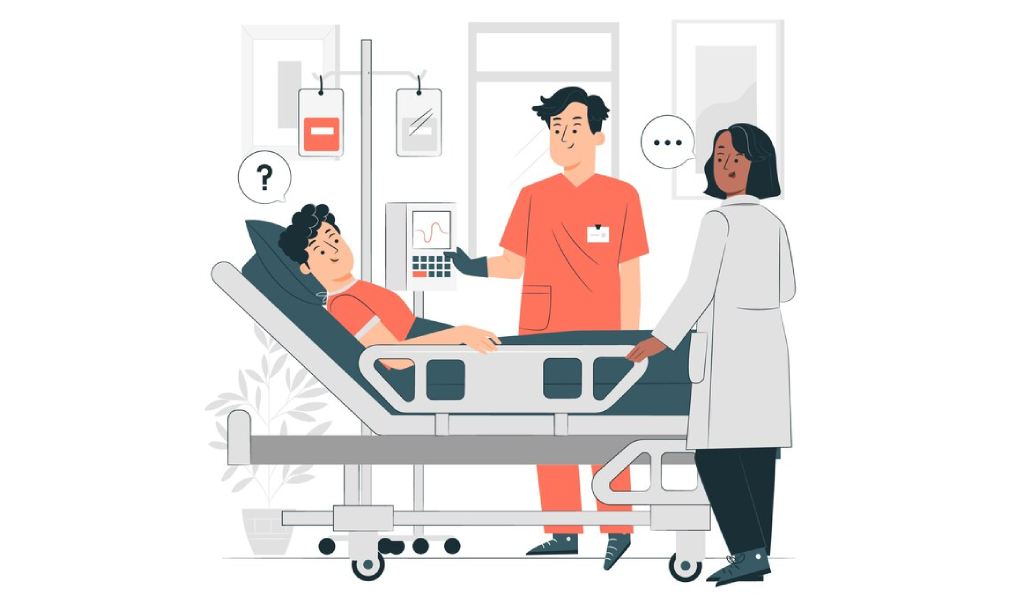Sometimes, no matter how much thought and attention goes into setting up your NDIS plan, it just doesn’t suit your needs anymore.
This could be because your situation has changed, perhaps through illness or a change in your support system. It could also simply be because once you put it into practice, the plan didn’t quite work out like you had hoped.
Whatever the reason, participants can rest assured that there are several ways you can ask for your plan to be changed.
In this article, we’ll outline how to request a plan review by submitting an NDIS change of circumstances request. We also cover aking for changes at scheduled plan reviews and other ways you can request a review of a decision made by the NDIS.
SeenCare is a specialist registered NDIS provider in Melbourne. We deliver a unique model of integrated healthcare and disability supports to participants with high medical needs.
To find out more, please contact us today.
Different Types of NDIS Plan Reviews
The first thing to know is that there are a few different ways your plan can be changed.
In the past, these were called ‘plan reviews.’ However, in most cases, the NDIS now uses the term ‘plan reassessment.’
The three main ways an NDIS plan might be changed are:
- An early plan reassessment: This can happen through submitting an NDIS change of circumstances form
- A scheduled plan reassessment: When your existing plan is reviewed before its expiry date
- A review of an NDIS decision: If you don’t agree with a decision the NDIS has made, you can request a formal review
We’ll cover these three ways to change your plan below, starting with a change of circumstances NDIS review.
NDIS Change of Circumstances
Most NDIS plans last for around 12 months. While the easiest way to change your plan details is to discuss it at the scheduled reassessment that occurs before your plan expires, sometimes you just can’t wait that long.
Fortunately, you can ask for a plan reassessment before your next review date, by reporting an NDIS change of circumstance.
Eligibility for an Early Plan Reassessment
To be eligible for an early review, you will need to demonstrate:
- How your circumstances have changed
- What support needs have changed significantly
- Why the existing plan doesn’t meet your support needs
If you are considering requesting an NDIS change of circumstances, it might be helpful to first consider whether any informal supports or mainstream services could meet your needs.
For example, if your change in circumstances is due to a new medical or mental health condition, your needs may be better met by public health services, not the NDIS.
Reasons Support Needs Might Change
Some of the most common reasons a person’s support needs might change are:
- Worsening functional impairment due to new or existing disability. As an example, you might now need support with personal care, when you could previously manage that independently
- A change in living circumstances (like loss of a support person or being new to living independently)
- New health needs you have difficulty managing because of your disability (such as needing to follow a new medication management regime to manage diabetes or heart disease)
- Changes to your goals or daily activities. For example, you might have recently got a job or started studying
There are no restrictions on the reasons for requesting a change of circumstance NDIS review. However, keep in mind that any new funding approved for your plan still needs to meet the criteria for being reasonable and necessary according to NDIS guidelines.
Submitting an NDIS Change of Circumstance Form
Before you rush off to submit a change of circumstances form NDIS, it could be worth considering whether one of the other options for reporting a change in circumstances might be a better choice first.
Options for informing the NDIS of a change in your situation include:
- Speaking to an LAC
- Visiting an NDIS office
- Phoning the NDIS on 1800 800 110
- Sending a letter or email advising of the change (with any supporting evidence)
- Completing a NDIS change of circumstances form (available here)
Be prepared that whatever option you choose, you will likely have to provide evidence to support your request for an early plan reassessment.
For medical issues and/or disability, it’s best to have a report from any of your treating health professionals. If your request is due to a change in living situation or goals, a brief letter or statement should be enough.
What Happens After Requesting an Early Plan Reassessment?
After your NDIS change of circumstance request is made, you will be informed of the outcome. This can take a while, so don’t be shy about following up with the NDIS to check on the progress.
Possible outcomes could be:
- A new plan being created
- A variation on your existing plan
- The NDIS requesting more information
- Your NDIS change of circumstances request being denied (see ‘Review of an NDIS Decision’ below for options to manage this)
Scheduled Plan Reassessment
As mentioned previously, all NDIS plans are automatically scheduled for reassessment before they expire. This is known as a scheduled plan reassessment.
At a scheduled reassessment, you can ask for your plan to be changed without needing to submit any additional forms or making a formal request. Keep in mind, however, the same guidelines apply as if you were requesting a change of circumstances NDIS review (eg, funding can only be for supports considered ‘reasonable and necessary.’
To receive different or increased funding at a scheduled plan reassessment, you will need to demonstrate:
- Why a change in plan is required
- What additional supports are needed
- How these new supports are related to your disability
Review of an NDIS Decision
If the NDIS makes a decision you don’t agree with, you can ask for it to be reviewed. This is called an ‘internal review’ (meaning the NDIS will review their own decision).
Common reasons for requesting review of an NDIS decision are:
- Your NDIS application was rejected
- You don’t believe the level of funding provided was sufficient
- Requests for certain supports (like Supported Independent Living or In-Home Nursing) were declined
Further information on requesting a review of a decision is available on the NDIS website
5 Tips for a Positive Outcome
Whether you’re requesting an NDIS change of circumstances or attending a scheduled plan reassessment, there are a few things you can do to increase the chances of a positive outcome.
- Keep it objective: Needing to change your plan can be stressful, especially if you don’t have the assistance to support you with daily life that you need. While it’s ok to talk to the NDIS about how you are feeling, try to stay focused on your support needs and how they are impacted by your disability.
- Gather your evidence: Not having sufficient evidence to support your request for a change of circumstances NDIS is the main reason for delays or rejections when asking to change your plan. So, be sure to ask for reports from treating health professionals to support your request as soon as possible. You can find more information on this topic on the Providing evidence of your disability page on the NDIS website.
- Be patient: Unfortunately, getting a decision on an NDIS change of circumstance request can take time. If your request is urgent, explain why when you make your request (backed up by supporting evidence if possible). Either way, be prepared to wait weeks to months for a decision.
- Ask for support: There are many people who can support you to submit an NDIS change of circumstances form. An LAC, support coordinator or current service provider are good places to start. If you are struggling with the process, please clearly let the NDIS know, by saying, “I don’t understand how to ask for my plan to be changed and I need support with the process.”
- Focus on goals: A good way to ensure your requests are framed in the right way is to relate them back to your goals. For example, if you would like the NDIS to fund supports to help you learn to play guitar, saying, “I want support to participate in the community and make new friends,” is more likely to succeed than, “I want funding for guitar lessons.”
The Importance of Choosing the Right Provider
In this article, we covered how to request an NDIS change of circumstances, along with some of the other ways your plan can be reviewed or changed.
While the funding amounts and categories in your plan are the most important ingredient in getting your support needs met in the community, a close second is your choice of provider.
Simply put, if your NDIS provider is not equipped to meet your needs, you might struggle to get the care you need to thrive and achieve your goals.
If you are an NDIS participant in Melbourne with high medical needs, SeenCare is ideally placed to support you in the community.
With a dedicated team of disability support workers, bulk-billing GPsbulk-billing GPs, and in-home nurses, we can deliver a unique model of care to support people with complex care needs.
To find out more, contact one of our friendly team members today.













